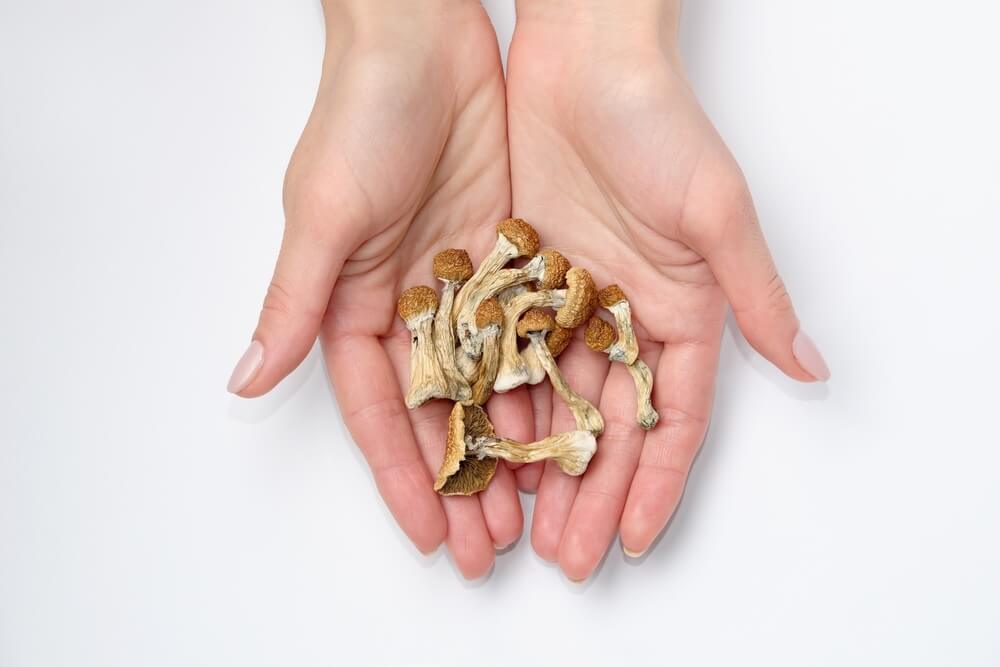Anyone who’s experienced a mental health issue knows that finding the best solution to address it can be a daunting task. Fortunately, psychedelic drugs may offer new hope to those with mental illness – especially those who’ve tried several avenues of treatment without success.
Psychedelic therapy shows promise for treating a number of conditions, including depression, anxiety, post-traumatic stress disorder, and eating disorders – possibly even addiction. But how does it work? And what does the research really say about its efficacy?
What is Psychedelic Therapy?
Conventional medications to treat mental health conditions usually require patients to take them for a significant amount of time (often several weeks) to start taking effect. In addition, they only work if the patient continues to take them. Research into psychedelic therapy, by contrast, suggests that patients might find immediate improvement, often with a single dose.
Psychedelic drugs can cause profound psychological changes in a very short amount of time. When they’re administered in measured doses under the supervision of licensed medical professionals and combined with psychological treatments, such as psychotherapy and behavioral therapy, there’s evidence that these psychological changes can persist long-term.
And that’s the real goal of psychedelic therapy – to increase the success of these more traditional treatment methods.
How Does Psychedelic Therapy Work?
Psychedelics cause the brain to enter an altered state of consciousness. In this altered state, there’s evidence that the brain is more flexible, making people more open to suggestion and allowing them to access parts of their conscious and subconscious minds that are ordinarily inaccessible.
This increased openness to new information makes it possible to introduce new patterns of thinking and behavior that can essentially retrain our brains.
Psychedelic therapy protocols typically follow four phases:
- Assessment phase – A mental health professional(s) will perform necessary initial assessments, then sit down with the patient to lay out a timeline and goals for therapy.
- Preparation phase – This phase prepares patients, both physically and emotionally, for the treatment. This phase is especially important for those who’ve never tried psychedelic drugs before, as it can be intense and overwhelming.

- Experience phase – During this phase, the clinician administers the medication to the patient and monitors their health and mental wellbeing as it takes effect. Once the effects begin, they will begin to conduct any pre-agreed-upon therapy.
- Integration phase – After the medication wears off, the clinician walks the patient through their experience and helps them reflect upon and learn from the experience.
What Psychedelic Drugs Show Promise in Treating Mental Health Conditions?
Psilocybin – A naturally occurring psychedelic compound produced by fungi, a.k.a. mushrooms. In sufficient quantities, it causes euphoria, visual and mental hallucinations, changes in perception, a distorted sense of time, and perceived spiritual experiences.
Lysergic acid diethylamide (LSD) – More commonly known as acid, LSD produces intensified thoughts, emotions, and sensory perception, as well as visual/auditory hallucinations at higher doses. LSD can also lead to mystical experiences and allow users to temporarily dissociate from their ego, or sense of self.
Ketamine and Esketamine – Both produce a dissociative, trance-like state, and are known to be potent anti-depressants. Esketamine has proven to be such a powerful tool that the FDA approved its use in those with treatment-resistant depression in 2019.
MDMA (Ecstasy) – MDMA is a powerful central nervous system stimulant that causes a flood of the neurotransmitters serotonin, dopamine, and noradrenaline. This brings about feelings of altered sensations, increased energy, empathy, and pleasure.
What Research Says About Psychedelics as Mental Health Treatments
While much of the research on psychedelic medicine as a treatment for mental illness is still mixed on its success, some studies do seem to show compelling results.
A recent study from researchers at Johns Hopkins University suggests that as few as two doses of psilocybin, combined with psychological and behavioral therapies, can lead to significant improvement of depression symptoms. Even more promising, most of the study’s participants continued to report diminished depression symptoms after four weeks, with half reporting that their symptoms had completely gone.
The Future of Psychedelic Medicine for Mental Illness
Considering the attention that mental health diagnosis and treatment garnered in recent years, it shouldn’t come as a surprise that research into alternative therapies and medicines also picked up – and will continue to gather – more momentum. Psilocybin was even granted “breakthrough” status in 2019, fast-tracking the approval of clinical research and real-world studies.
Yet, despite the promise some psychedelic substances show for treating certain mental health conditions, more research is needed before they can be considered for FDA approval and inclusion as mainstream treatments.




